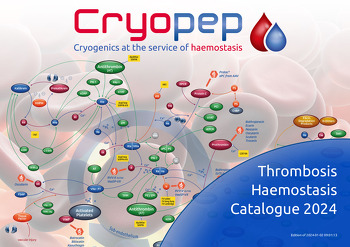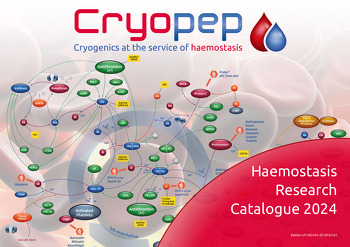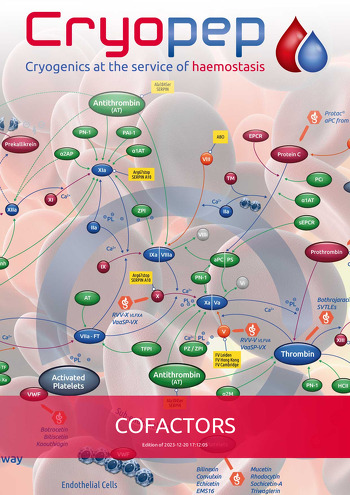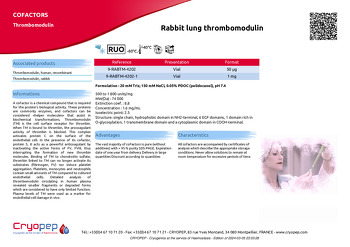HEMOSTASIS COAGULATION RESEARCH COFACTORS THROMBOMODULIN
Rabbit lung thrombomodulin





Formulation : 20 mM Tris; 150 mM NaCl, 0.05% PDOC (polidocanol), pH 7.4
500 to 1 800 units/mg
MW(Da) : 74 000
Extinction coef. : 8.8
Concentration : 1.6 mg/mL
Isoelectric point: 2.5
Structure: single chain, hydrophobic domain in NH2-terminal, 6 EGF domains, 1 domain rich in O-glycosylation, 1 transmembrane domain and a cytoplasmic domain in COOH-terminal.
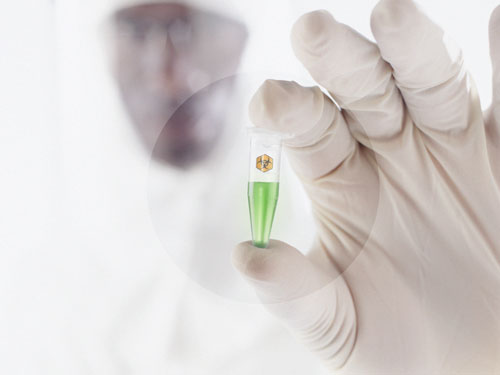
| Reference | 9-RABTM-4202 |
|---|---|
| Presentation | Vial |
| Format | 50 µg |
| Quote |
| Reference | 9-RABTM-4202-1 |
|---|---|
| Presentation | Vial |
| Format | 1 mg |
| Quote |
Price list, safety data sheets and notices are accessible to our registered customers.
| Reference | Presentation | Format | Quote | Product sheet |
|---|---|---|---|---|
| 9-RABTM-4202 | Vial | 50 µg | ||
| 9-RABTM-4202-1 | Vial | 1 mg |












